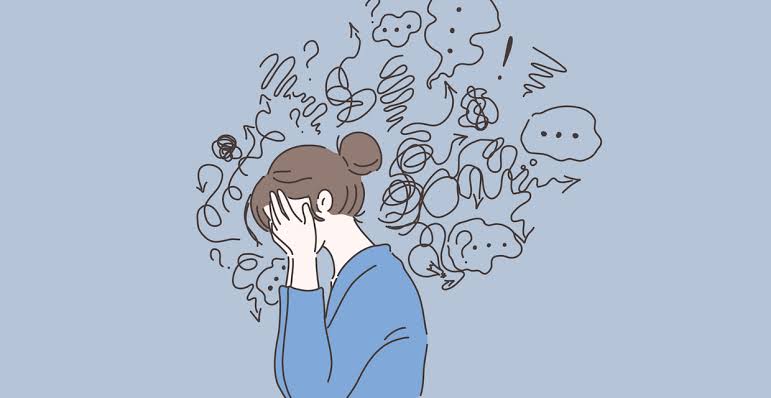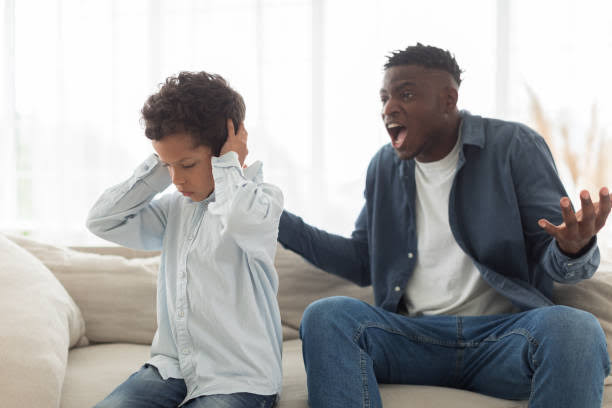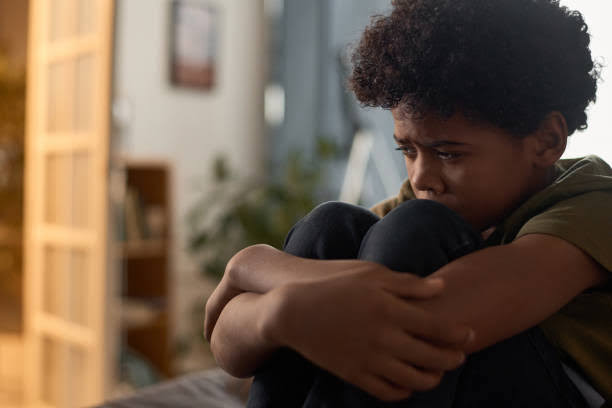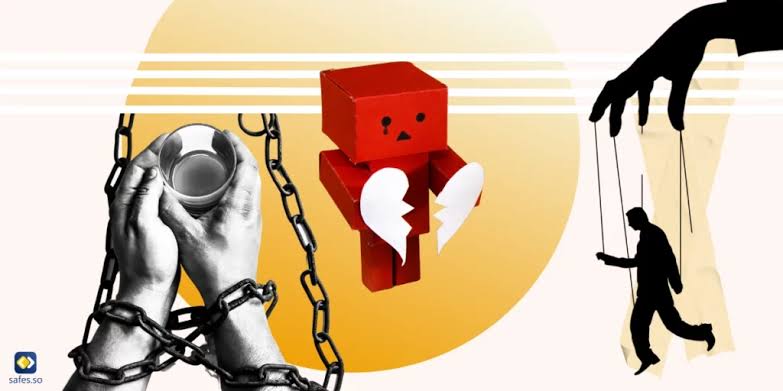Emotional Blackmail in African Homes: Love, Guilt, and Obedience

INTRODUCTION: When Love Comes with Strings
In many African families, love is rarely expressed verbally. It is shown through sacrifice, provision, discipline, and duty. And while these acts of love are often sincere, they are also sometimes weaponized—used to guilt, shame, or control those we claim to love.
So we must ask the difficult question:
When does love stop being nurturing and start becoming controlling?
At what point does “I raised you” become “You owe me your silence, your choices, your life”?
Defining Emotional Blackmail
Emotional blackmail is not just a harsh scolding or a guilt trip, it is a calculated psychological tactic where someone uses fear, guilt, or obligation to manipulate another person into doing what they want, often at the cost of the person’s autonomy or emotional well-being.

Photo Credit : Istocks
The FGOS Model – Fear, Guilt, Obligation, Silent Treatment
Let’s break down the four primary tools emotional blackmailers often use:
1. Fear
“If you go through with this, I’ll never speak to you again.”
Fear-based manipulation relies on the threat of rejection, punishment, or isolation.
Social Insight
Navigate the Rhythms of African Communities
Bold Conversations. Real Impact. True Narratives.
2. Guilt
“How can you treat me like this after everything I’ve done for you?”
The idea is simple: if you don’t comply, you are ungrateful, selfish, or a disappointment.
3. Obligation
“You owe me your success—I gave up my own dreams for you.”
Here, the past is used as a debt note.
4. Silent Treatment
Days of cold stares, withheld affection, or emotionally distancing behavior. It creates an emotional void that pressures the victim to “fix” the situation—often by surrendering their own needs.
In African culture, these behaviors are often normalized, or romanticized as signs of deep love and moral parenting. But make no mistake: when fear, guilt, obligation, and silence replace open communication and mutual respect, we are no longer raising children, we’re conditioning them.
How It Shows Up In African Homes
In many African families, emotional blackmail doesn’t always come with screaming or punishment, it often arrives softly, wrapped in culturally accepted phrases and noble-sounding intentions.
These are the words that echo across generations, often spoken with a tired sigh or a wounded tone, at first glance, these may seem like mere expressions of love, or duty. But when unpacked, they reveal a pattern of emotional manipulation, sometimes unintentional, often unchecked.
“I Gave Up Everything for You”
Social Insight
Navigate the Rhythms of African Communities
Bold Conversations. Real Impact. True Narratives.
This statement, while rooted in real sacrifice, is frequently used to guilt children into submission. It turns love into leverage and conditions the child to believe that asserting their individuality is a betrayal.
Instead of being raised with gratitude and freedom, many children grow up feeling like they’re repaying a debt, a lifelong loan of sacrifice they can never fully clear.
The Gendered Weight of Emotional Blackmail
While all children may experience emotional blackmail, girls disproportionately carry the emotional labour of the household. They are taught to be peacemakers, caretakers, and reputation protectors—often at the cost of their own emotional needs.
A daughter who challenges toxic behavior may be told, “You’ll destroy this family.”
A son who expresses sadness may hear, “Man up—don’t embarrass me.”
Both responses are rooted in control, not care.
In the end, these culturally loaded phrases don’t just raise obedient children, they often raise emotionally burdened adults who find it difficult to speak up, set boundaries, or even recognize abuse.
And yet, many don’t realize they’ve been emotionally blackmailed because it came dressed as love.
The Role Of Love & Sacrifice In Parental Guilt
In many African homes, love is proven through sacrifice—parents work multiple jobs, forgo personal dreams, and endure hardship to raise their children. These sacrifices are real, immense, and deeply rooted in love. But often, that love becomes conditional, weaponized into guilt to control behavior and enforce obedience.
“I went hungry so you could eat, how dare you talk back to me?”
These aren’t just statements of pain they’re messages loaded with expectation. They imply that the child’s freedom, voice, or choice must be exchanged for the parent’s sacrifices.
Social Insight
Navigate the Rhythms of African Communities
Bold Conversations. Real Impact. True Narratives.
Obedience as a Measure of Love
In this dynamic, obedience becomes proof of love, while disobedience becomes a form of betrayal. A child who questions tradition or asserts independence is not seen as thinking for themselves, they are seen as dishonoring the family.
When Love Becomes a Transaction
This emotional economy—“I gave you everything, so you owe me everything in return”—reduces love to a transactional exchange, not a relationship built on mutual trust.
When sacrifice is wielded as a guilt trip rather than an act of generosity, it stops being a gift—and becomes a leash.
The Impact On Self-worth & Mental Health
Emotional blackmail doesn’t leave physical bruises—but its scars often run deeper and last longer. Children who grow up under the weight of guilt, fear, and conditional love often carry that burden into adulthood, long after they’ve left the house.

Photo Credit: Istocks
Over time, children exposed to chronic emotional blackmail may develop:
Low Self-Esteem:
They question their worth, feel undeserving of love unless they’re performing or sacrificing for others. They may shrink themselves to be accepted.
Difficulty Setting Boundaries:
Saying “no” feels dangerous or disrespectful. They often struggle to assert themselves in personal or professional spaces.
People-Pleasing Tendencies:
Desperate to keep the peace and avoid conflict, they become overly accommodating—even when it hurts them.
Anxiety and Guilt in Adult Relationships:
Emotional blackmail teaches them that love equals obligation. So in adult friendships, romantic partnerships, or even at work, they overextend themselves and feel intense guilt for prioritizing their own needs.
A report by RSIS International found that over adolescents in the region experience emotional abuse in the home, including verbal manipulation, threats, and emotional neglect.
WHO Africa estimates that 1 in 7 African adolescents struggles with a diagnosed mental health issue—yet 80–90% receive no support or intervention. A 2021 study in BMC Psychology linked emotional abuse in African households to higher rates of adult depression, anxiety disorders, and chronic feelings of inadequacy.
These numbers aren’t just statistics—they reflect the lived realities of millions of young people raised to believe that love means suffering, and that questioning emotional harm is “disrespect.
FAMILY VS FREEDOM: Why It’s Hard To Speak Up
In African cultures, family is sacred. Elders are revered, and obedience is seen as both a virtue and a survival skill. But when obedience is demanded without question and emotional manipulation is disguised as discipline, speaking up becomes a dangerous act—not just socially, but emotionally.
Cultural Taboo: The Fear of Being “Ungrateful” or “Westernized”
Many young Africans who attempt to set boundaries or question emotional abuse are quickly silenced with words like:
“So because you’ve gone to school, you now think you’re wiser than us?”
Rather than being heard, they’re gaslighted—made to feel that asserting their needs is not only selfish but shameful.
And the most common weapon? Guilt.
Cultural & Religious Reinforcement of Obedience
From childhood, many Africans are taught obedience through religious and cultural doctrines. while proverbs reinforce hierarchy without accountability. In this framework, elders are never wrong, and children are always at fault—even when they are hurting.
When Silence Becomes a Survival Strategy
Faced with this environment, many young people, especially girls, choose silence, not out of respect, but out of fear.
They stop explaining. Stop hoping. Stop confronting.
BREAKING THE CYCLE: Towards Healthier Family Dynamics
It’s easy to think this is “just the way things are.” But the truth is, cycles of emotional blackmail can be broken—and are being broken every day across African homes by parents, guardians, and young people who are choosing healing over hurt.
Because love that’s real doesn’t demand obedience, it invites understanding.
Mutual Respect and Listening
Healthy families don’t silence conflict they navigate it with empathy. Respect must be mutual, not one-sided. Children are not beneath adults they are human beings learning, evolving, and deserving of dignity.
Setting Boundaries
Setting emotional boundaries is not rebellion—it’s self-awareness.

Photo Credit: Google Image
Across the continent, a new generation of parents, educators, and therapists are challenging outdated norms and championing emotional intelligence in child-rearing.
Social Insight
Navigate the Rhythms of African Communities
Bold Conversations. Real Impact. True Narratives.
This is the power of re-parenting—choosing a new way, even when you were never shown one.
CONCLUSION: LOVE WITHOUT LEVERAGE
In African homes, love is often loud in sacrifice but silent in emotion. Many families pass down generations of duty, discipline, and devotion, but often fail to question whether these values are grounded in care or control.
It’s time to face a hard truth:
Emotional blackmail isn’t love—it’s control.
And control, no matter how well-intentioned, leaves wounds that silence, shame, and guilt cannot heal.
If we want homes that thrive, not just survive, we must begin to build relationships rooted in trust, empathy, and mutual respect. We must raise children who speak—not just obey.
Because love that requires silence, submission, or self-erasure isn’t love—it’s leverage.
The path to healing begins not with blame—but with honesty, awareness, and the courage to unlearn what no longer serves us. The cycle can end with us.
You may also like...
Super Eagles Fury! Coach Eric Chelle Slammed Over Shocking $130K Salary Demand!
)
Super Eagles head coach Eric Chelle's demands for a $130,000 monthly salary and extensive benefits have ignited a major ...
Premier League Immortal! James Milner Shatters Appearance Record, Klopp Hails Legend!

Football icon James Milner has surpassed Gareth Barry's Premier League appearance record, making his 654th outing at age...
Starfleet Shockwave: Fans Missed Key Detail in 'Deep Space Nine' Icon's 'Starfleet Academy' Return!

Starfleet Academy's latest episode features the long-awaited return of Jake Sisko, honoring his legendary father, Captai...
Rhaenyra's Destiny: 'House of the Dragon' Hints at Shocking Game of Thrones Finale Twist!

The 'House of the Dragon' Season 3 teaser hints at a dark path for Rhaenyra, suggesting she may descend into madness. He...
Amidah Lateef Unveils Shocking Truth About Nigerian University Hostel Crisis!

Many university students are forced to live off-campus due to limited hostel spaces, facing daily commutes, financial bu...
African Development Soars: Eswatini Hails Ethiopia's Ambitious Mega Projects

The Kingdom of Eswatini has lauded Ethiopia's significant strides in large-scale development projects, particularly high...
West African Tensions Mount: Ghana Drags Togo to Arbitration Over Maritime Borders

Ghana has initiated international arbitration under UNCLOS to settle its long-standing maritime boundary dispute with To...
Indian AI Arena Ignites: Sarvam Unleashes Indus AI Chat App in Fierce Market Battle

Sarvam, an Indian AI startup, has launched its Indus chat app, powered by its 105-billion-parameter large language model...


